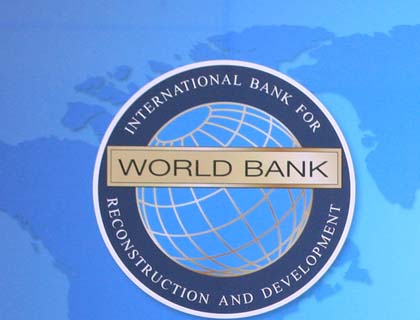KABUL - Afghanistan could face economic collapse if international assistance is abruptly cut as foreign combat forces are withdrawn, the World Bank warned, stressing that the war-ravaged nation will need billions of dollars in aid for a decade or more. The forecast by the World Bank, released late Tuesday, reflects broader concerns that Afghanistan will enter into a deep recession as the international community gradually reduces both the aid it provides the government and starts drawing down the 130,000 troops currently in the country.
That troop withdrawal, which is slated to be completed by the end of 2014, has already begun with the transition of security responsibility from NATO to Afghan. "The full assumption of Afghan responsibility for security by end-2014, the drawdown of most international military forces and the likely reduction in overall assistance will have a profound impact on Afghanistan's economic and political landscape, extending well beyond 2014," the World Bank said in a report.
The organization said Afghanistan this year received $15.7 billion in aid, representing more than 90 percent of its public spending.
"International experience and Afghanistan's history after the Soviet military withdrawal in 1989 demonstrate that violent fluctuations in aid, especially abrupt aid cutoffs, are extremely dangerous and destabilizing," the report said.
It said that the international community had to find ways to mitigate the impact and find a more sustainable way to deliver aid in the years to come. The government of President Hamid Karzai has pinned much of its hopes on massive copper deposits and other mineral wealth, but exploiting those resources, which Afghan officials predict will bring in about $3 trillion, will take years.
"The extremely high level of current annual aid is roughly the same amount as Afghanistan's Gross Domestic Product and cannot be sustained," the study said.
The World Bank estimated that Afghanistan's domestic revenues are expected to increase from 10 percent of GDP in 2011 to 17.5 percent by 2021. The rise, however, is dependent on the opening of some mining facilities, efficient tax collection and a security situation that does not deteriorate.
Weighing heavily on the country's fiscal position is spending on the Afghan National Security Forces — slated to increase to 352,000 personnel by the end of 2014 — and basic and civil services. Those expenses will have grown to twice the size of revenues and will result in a shortfall of about $7.8 billion annually, or about 25 percent of the country's GDP in 2021.
"To close this enormous fiscal gap, Afghanistan must rely on continuing international funding to pay for most security costs if the size of the force remains at currently agreed levels," the study said.
If foreign funding does not materialize, then the World Bank said the Afghan government would have to make "extremely difficult and possibly destabilizing trade-offs," such as shrinking the security force or cutting funds from civilian spending. (AP)

